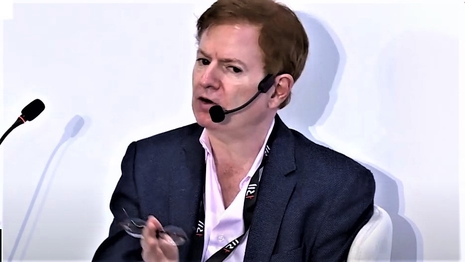 One way that you know Washington Post “Fact Checker” Glenn Kessler was a liberal anti-Trump warrior is how National Public Radio was so sad to see him leave the paper. On Thursday’s All Things Considered, no one considered a counterpoint, that Kessler was extremely biased in his target selection.
One way that you know Washington Post “Fact Checker” Glenn Kessler was a liberal anti-Trump warrior is how National Public Radio was so sad to see him leave the paper. On Thursday’s All Things Considered, no one considered a counterpoint, that Kessler was extremely biased in his target selection.
Our Alex Christy just pointed out that Kessler’s ratio this year was 105 checks “correcting” Republicans, and just four for Democrats. The Post created a database of 30,000 “false and misleading claims” for Trump, and then announced they would do no such counting thing for Biden.
NPR anchor Mary Louise Kelly sounded like she was hoisting a cocktail to celebrate Kessler’s titled oeuvre:
KELLY: “In an era where false claims are the norm, it’s much easier to ignore the fact-checkers.” Those are the final words of the final column of Glenn Kessler, who has been the fact-checker at The Washington Post these last 14 years. Kessler is one of many journalists making high-profile exits from The Post, some of whom cite the new direction the paper’s leadership is taking.
As usual, NPR was concerned that Jeff Bezos was watering down the left-wing hackery, which they refused to do at NPR, even as their taxpaper money spigot was turned off. Kelly tossed a softball:
KELLY: As you thought through on what note you wanted to leave, what you wanted to be your parting thought, walk me through the process and how difficult or not that was.
KESSLER: Well, so I have been running the fact-checker now for 14 1/2 years. And what struck me was how when I reviewed the 3,000 or so fact-checks I had written or edited…
KELLY: Three thousand, wow.
KESSLER: …(Laughter) Yes. There was a very clear dividing line in the period, which was June 2015. And that’s when Donald Trump took the escalator down and announced he was running for president. Before that moment, politicians paid attention to fact-checks. They would, you know, be shamed by the Pinocchios that I would award. And they tried to keep their claims tethered to the truth as much as you would expect a politician to do. But Trump really changed the dynamic, and he said many things that were false. And even though he was fact-checked as false, he would simply double down or triple down and keep saying them.
Kessler wanted to have power, that presidents and presidential candidates would wither at his gaze, and genuflect at his rulings. Kelly wasn’t going to ask about where his facts or his bias was challenged, like how he “evolved” on the theory that Covid emerged from a Chinese lab leak, or how Hunter Biden’s laptop exposed real corrupt dealings with foreign businessmen.
A longer version aired on their Consider This podcast, which included this exchange:
KELLY: So where does that leave you, feeling like the exercise of fact-checking was still worthwhile, still worth doing, even if it didn’t alter the behavior of the politicians who you were tracking?
KESSLER: Right. The fact-checking business, so to speak, is still very valuable and important. I didn’t really fact-check claims to change the behavior of politicians. [!] They’re going to do what they’re going to do. The fact checks are intended to make people better informed about complex policies. The more complex a issue is, the more apt a politician is going to try to mislead it. The main thing is that with the rise of Trump and the rise of social media, there are just so many false claims that it’s kind of hard for people to sort out what’s true or not.
When liberals start complaining about “the rise of social media,” part of that complaint is that Democrat scandals or Republican arguments about Democrat failures can gain traction, and the liberal media doesn’t like losing control of the “public conversation.” Counterpoints and contrary narratives should not be considered.

















